I wrote this article in Japanese and translated it into English using ChatGPT. I also used ChatGPT to create the English article title. I did my best to correct any translation mistakes, but please let me know if you find any errors. By the way, I did not use ChatGPT when writing the Japanese article. The entire article was written from scratch by me, Saikawa Goto.
Introduction
Movies and books covered in this article

Three takeaways from this article
- A world where the stance of “if I don’t want to know something, I’ll just keep not knowing it” is acceptable
- The possibility of information being transmitted has greatly increased, but the possibility of that information being received has significantly decreased.
- If we don’t know, we can’t even imagine.
Self-introduction article


Published Kindle books(Free on Kindle Unlimited)
“The genius Einstein: An easy-to-understand book about interesting science advances that is not too simple based on his life and discoveries: Theory of Relativity, Cosmology and Quantum Theory”
“Why is “lack of imagination” called “communication skills”?: Japanese-specific”negative” communication”
The quotes used in this article are based on notes taken at the movie theater from movies in Japanese and are not direct quotes from the foreign language original movies, even if they exist.
Even Now, Probably Somewhere in the World, There is a “Gwangju Uprising” Happening that We Do Not Know about
If We Don’t Pay Attention, We Live in a World Where We Can’t Know Anything

We live in a wonderful world. We can get various information from small devices on our hands no matter where we are. We can make friends in countries we have never been to and anyone can share what we want to say. And that’s how we live in a society overflowing with such a vast amount of information.


Isn’t it wonderful?
However, it’s obvious that no matter how much information increases exponentially, the processing speed of the human brain does not increase at the same rate. If we simply compare the amount of information we touch, ignoring factors such as “depth of information” and “understanding,” we will undoubtedly have access to more information than we did a decade ago. However, this does not mean that the human brain has evolved enough to cope with the rapid increase in information.
As members of a society with too much information, I feel “we must limit the information we touch, even if I have to find some reason to do so.”
Of course, even a decade ago, there was no way that we could have had the time and ability to touch all the information that existed at that time. No matter what era it is, humans should be selecting and discarding information based on some criteria.

However, I think there was still a stance in the past when there was not as much information as there is now, to be exposed to not only “information of interest” but also “information that one should know as a person”. It’s what we call “education.” But in modern times, there is no such luxury. Even with just the information that one is interested in, it exists in an overwhelming amount.
So, how have we come to deal with information now that we can’t even select sift it with the filter of “interest”?
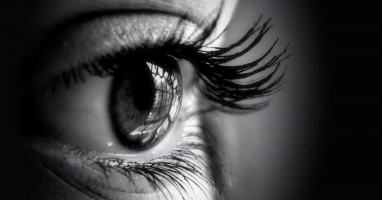
Perhaps many people are judging based on whether it feels comfortable or not. In other words, it means that they are selecting and incorporating only the further “comfortable information” from among the “information of interest.”
To put it more simply, it means that it has become natural to take the stance of “let’s not know information that we don’t want to know.”

One unique aspect of modern times is that everyone understands that they are exposed to completely different information, which means that there are no longer opportunities to feel ashamed of not knowing something. Nowadays, apart from what is taught in schools, I think that there is hardly any knowledge that can be considered “common sense.” This is not just a problem of generation gaps, but it can also happen within the same generation. Therefore, in the society we live in, the phrase “You didn’t know that?” doesn’t function as a motivator to explore unknown information.
And it’s precisely because of this kind of society that the stance of “let’s just stay ignorant of the information we don’t want to know” becomes even stronger. Without the feeling of “It’s embarrassing not to know,” people wouldn’t make the effort to learn.

We live in such a world. That is to say, I believe we must first understand the reality that even if we are not strongly conscious of trying to eliminate information, the information that reaches us as a result is quite constrained.
How Can We Learn about What is Happening in the World?
I haven’t read newspapers, either in print or online. Even though I know I should, I just can’t seem to motivate myself to read them. I enjoy non-fiction and documentaries, so I know I would probably find the content in newspapers interesting, but I just can’t bring myself to read them.


I often watch TV news. From tabloid shows to news programs, I can say that I get information about what is happening in the world mainly from TV news. I think that when it comes to following the superficial facts of what is happening, TV is the easiest way to get information. Unlike the internet, TV broadcasts are supposed to somewhat forced to cater to the “majority,” so we can get a sense of “what we should know” by watching it.

However, of course, that doesn’t mean it’s perfect. It would be difficult for TV to touch on negative topics about companies that run commercials, and information that is judged to be of no interest to the “majority” may not be covered. I’ve also heard that the Japanese media has sensitive to authority’s mood. I understand that there are various “self-restraint” in TV news.
However, this is actually the same for newspapers and the internet. If it is an individual or an independent organization, they may be able to follow the facts without being influenced by sponsors or pressure from somewhere, but on the other hand, it will have to be on a small scale, and therefore there will be many things that cannot be done. And as the organization grows, it cannot be completely unrelated to sponsors and SONTAKU (to gauge the feelings of someone).

And the problem is not only on the reporting side.
A few years ago, I was talking to a female friend who was about 25 years old at the time, and I was very surprised. She said she had never heard of the name “Ito Shiori” and didn’t know why that person was making headlines. I was shocked by this statement.
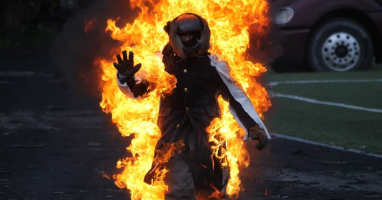
Ito Shiori is a person who stood up against a sexual crime, which one tends to reluctant to prosecute, under her real name and face, and became the catalyst for the “Me Too movement” in Japan. Although her story was reported on TV and in newspapers, her name was probably more widely spread on the internet. I’m not the type to avidly follow the internet, so I don’t know the details, but I believe it was a big topic on social media.
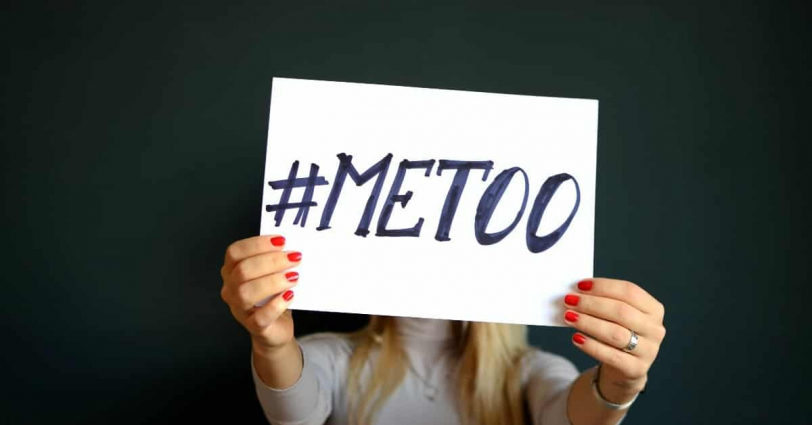
I was surprised when the lady friend, who of course is also on social networking sites in general, said she did not know the name “Ito Shiori”. I think Ito Shiori’s case is something that women of my friend’s age should be interested in. However, despite the hype on mass media and the internet, the information didn’t reach the people who should know the most, and that fact was shocking.

If something like the “Gwangju Uprising” were to happen again, could we living in this world really understand the reality of it? I can’t help but feel it might be impossible.
Even now, somewhere in the world, something like the “Gwangju Uprising” could be happening.
Certainly, SNS has had a big impact on changing situations. For example, I’ve heard that the so-called “Arab Spring” was a revolution that happened because smartphones became popular. Or, A 7-year-old girl who continued to tweet about the tragic situation in war-torn Syria had been also talked about.

Certainly, we can say that the likelihood of “information being disseminated” has increased significantly since the time of the “Gwangju Uprising”.
But what about the likelihood of “information being received”? If something like the “Gwangju Uprising” were happening somewhere in the world right now, and someone was continuously transmitting it in real-time, what are the chances that someone would notice it?

I probably won’t see it unless TV covers it; if it’s on Netnews, I might get at least an overview.
I think many people are in the same situation as me. That’s the world we live in.
Having “lots of information” doesn’t necessarily mean having more opportunities to know. In fact, it may even decrease. I always feel the fear of that when I’m dealing with information.

We Can’t Imagine What We Don’t Know
I think the scary thing about not knowing something is that we can’t even imagine it.


When something “bad” happens, everyone criticizes it at the same time. It’s certainly a situation where someone should take responsibility. However, I always think that there is nothing more pointless than criticizing without knowing the situation.
Whatever the “bad” thing may be, there should be some kind of “reason” that led to it. I don’t mean to say that it should be forgiven just because there is a reason, but I think it is foolish to criticize without knowing the reason.

In the movie “Shoplifters”, a “family” who is clearly breaking the law appears. The information reported in the news and such about this “family” is only superficial, and the background is not explored. Again, regardless of the circumstances, they should receive the punishment prescribed by the law. However, I feel frustrated by the reality that people who criticize without knowing the circumstances always come out in droves.
Ultimately, I think that people who criticize like a reflex are lacking in imagination.

Knowing is the first step to imagination. Whether it’s reality, stories, or anything else, by encountering “ideas, values, and emotions that do not naturally come to our mind,” our perspective on reality can change. There are countless realities in the world that we can’t grasp just by thinking they are “obvious.” Even if you reject those realities, you would have to accept the fact that there are realities that are hard to understand for us.
And the more we only touch “pleasant information,” the further we will inevitably be from such ideas.
Therefore, I believe that we must live with the consciousness of “trying to know things we don’t want to know” even if we have to force ourselves to do so. Otherwise, we will lose our imagination more and more. A society filled with zombie-like people who have lost their imagination would be nothing but tragic.

In this movie, the “Gwangju Uprising” is depicted. Of course, it’s important to know what the “Gwangju Uprising” was. But more importantly, it’s crucial to imagine that even now, somewhere in the world, a second “Gwangju Uprising” could be happening, and to think about what we could do if that were the case.

The current major trend in the world cannot even slow down unless we ourselves consciously stand still. In other words, our actions are being called into question.
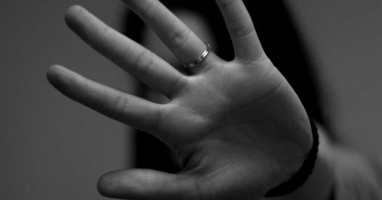
Content Introduction
This is a movie based on a real taxi driver.
A man who works as a taxi driver in Seoul is raising his only daughter Eun-jung on his own. He is generally cheerful and optimistic, but he thinks that he is causing his daughter a lot of trouble as a single parent and is worried about the situation where he has been unable to pay the rent. The unpaid rent is 100,000 won. He at least needs to pay this properly.
At such a timing, he hears a great story. Another taxi driver was talking about a foreign customer, saying that if he takes the foreigner all the way to Gwangju, he will pay 100,000 won. He acted to take this opportunity, successfully usurping that German customer. Then, using broken English, he takes that man named Peter to Gwangju.

However, on the way to Gwangju, the driver encountered a military roadblock for unknown reasons. Despite the obstacle, he managed to deceive the soldiers and reach Gwangju in order to obtain the promised 100,000 won from the German journalist, Peter.
Upon arrival, they were shocked to see garbage scattered on the streets and the city filled with ominous graffiti. What is going on? …… Peter then began filming the Gwangju, using an English-speaking student as an interpreter. It was here that he finally learned that the German was a reporter.

In front of them was a scene from hell. The military was brutally shooting at the citizens without hesitation. The man couldn’t help but think of his daughter’s face. He had to find a way to escape safely from here…
Impression
To be honest, I didn’t even know about the “Gwangju Uprising” until I watched this movie. It was a tragic event where the military suppressed the democracy movement with force. Without Peter (whose name in the movie is different from his real name, which is “Hinzpeter”) making it to Gwangju, the world might not have known about the “Gwangju Uprising”.

And the taxi driver who actually drove the foreign journalist to Gwangju existed, which is the basis for this movie.
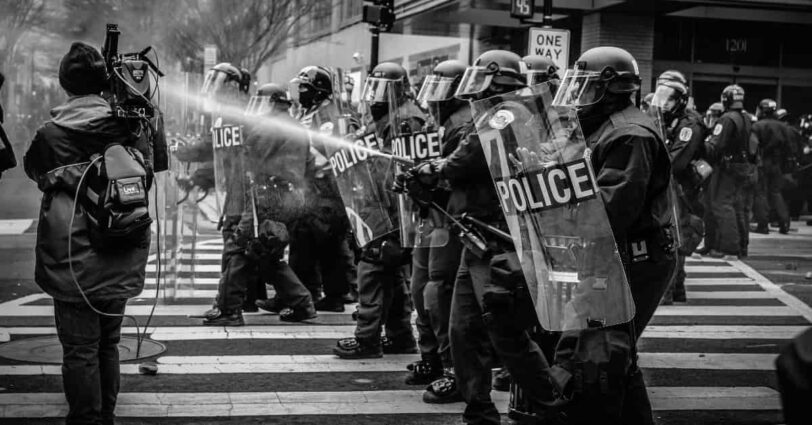
At the time this movie was released, there was little information available about this taxi driver. Hinzpeter himself tried every means to find the driver but failed, and ultimately passed away without being able to reunite with him. At the end of the movie, an interview with Hinzpeter is shown, where he told about his regret of not being able to reunite with the driver.

So, this movie is based on the testimony of Mr. Hinzpeter, who “hardly understood any Korean,” and it would be appropriate to think of it as fiction except for what he saw and heard.
In fact, it became clear who the taxi driver was who took Mr. Hinzpeter to Gwangju when this movie was released.
Although it deals with the extremely tragic reality of the “Gwangju Uprising,” the movie itself unfolds very “pleasantly.” The taxi driver is played by Song Kang-ho, who is usually seen in Korean movies, including “Parasite,” and he develops the story with a very comical performance.
That’s why the contrast between the scenes depicting the “Gwangju Uprising” in the latter half was impressive.

Since the beginning of the scene of “Gwangju Uprising,” I felt I was praying the entire time. I hoped that those who fought for justice would be safe and that the government of the time would wake up and acknowledge their mistake. I hoped for a world where such a terrible reality would not occur. I must have been wishing for that.
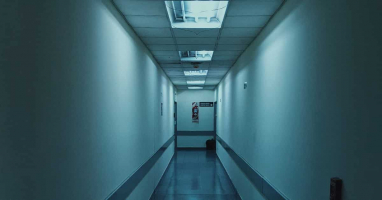
Furthermore, I must have wished for both Peter and the taxi driver to escape safely from Gwangju. Of course, given that such a movie has been made, they must have actually escaped from Gwangju and Peter should have been able to leave Korea with valuable film. It couldn’t be otherwise. However, I still couldn’t help but pray, that’s how terrible the reality is.
While watching the movie, it made me wonder, “Can I stay ‘decent’?”.
The soldiers who shoot at the citizens are also human beings. They are firing at the citizens on orders from the military. It is “their role to play” for them.

I would not even have to think it’s necessary to consider who is right between the soldiers and the civilians. However, in the case that I were on the side of the soldiers, I can’t confidently say whether I thought I was wrong and I could stop shooting. If the soldiers have families, they would have to protect their livelihoods. Or, they may also genuinely believe that they should prevent democratization and maintain the current regime. In any case, they have their own reasons, and I am not certain that I could behave differently than they would if I were put in the same situation.
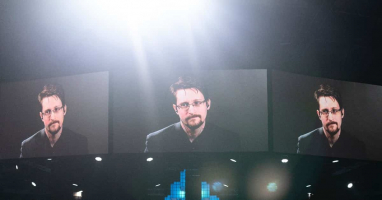
Conclusion
To maintain “integrity” in a society where “not knowing” or “not realizing” something is not shameful, one can only think of oneself as “shameful”.
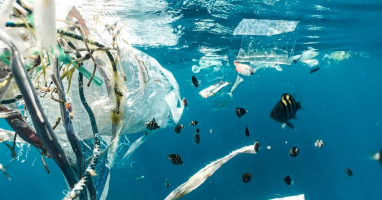
Not knowing something, not realizing something is shameful. I always want to remind myself of that.

Published Kindle books(Free on Kindle Unlimited)
“The genius Einstein: An easy-to-understand book about interesting science advances that is not too simple based on his life and discoveries: Theory of Relativity, Cosmology and Quantum Theory”
“Why is “lack of imagination” called “communication skills”?: Japanese-specific”negative” communication”







コメント